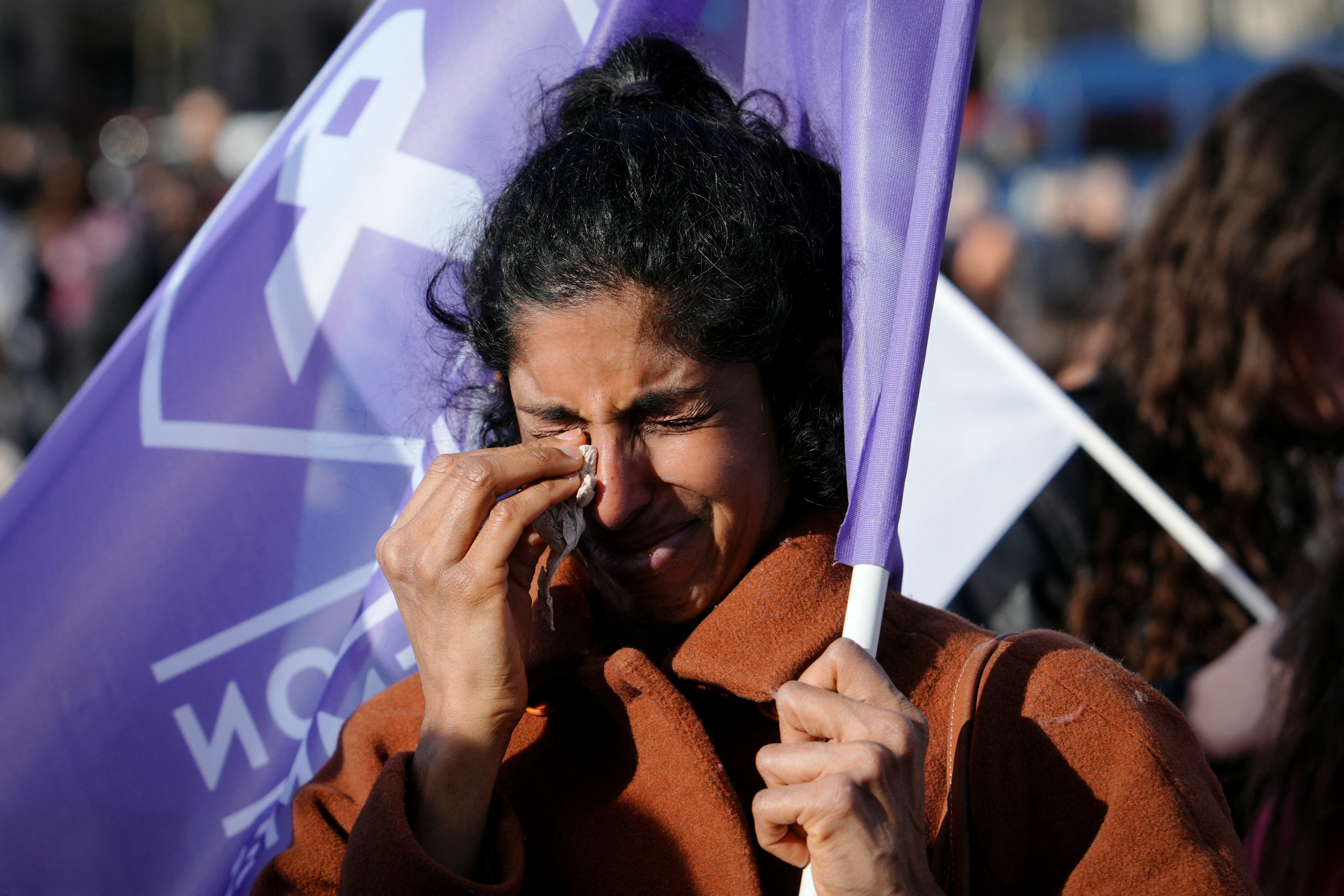Well done, France – every woman should have the right to an abortion
I am one of the many women in the UK who’ve had one, writes Amelia Loulli – it angers me that my right not to bear children is not enshrined in law


Your support helps us to tell the story
From reproductive rights to climate change to Big Tech, The Independent is on the ground when the story is developing. Whether it's investigating the financials of Elon Musk's pro-Trump PAC or producing our latest documentary, 'The A Word', which shines a light on the American women fighting for reproductive rights, we know how important it is to parse out the facts from the messaging.
At such a critical moment in US history, we need reporters on the ground. Your donation allows us to keep sending journalists to speak to both sides of the story.
The Independent is trusted by Americans across the entire political spectrum. And unlike many other quality news outlets, we choose not to lock Americans out of our reporting and analysis with paywalls. We believe quality journalism should be available to everyone, paid for by those who can afford it.
Your support makes all the difference.Soon after I had an abortion I read Annie Ernaux’s Happening, her personal account of the illegal abortion she had in France in 1963, which almost killed her. The book and its film adaptation impacted me so greatly that it became the basis of my MA thesis and eventual PhD.
At the time, as now, the noose of restrictive abortion laws in countries across the world was being tightened, putting more and more women’s lives in danger. America was months away from overturning Roe v Wade and the UK was beginning to see the steepest rise in abortion-related prosecutions for decades.
Yet still I felt grateful to live in a country where I could access a safe abortion with relatively few barriers. It’s only recently that I began to recognise how misplaced that gratitude was. I’ve spent the years since my abortion researching and writing my own books that aim to normalise and humanise the realities of the abortion experience, holding close the statistic I soon learned by heart – that one in three women in the UK will have at least one abortion by the time they are 45 years old.
Since I’ve come to realise how normal abortion actually is, I’ve written at length about the significant damage the unnecessary laws and stigmas surrounding it do to women. As a result, I’m no longer grateful.
As soon as I heard the news that France had voted to enshrine abortion as a guaranteed freedom in its constitution and saw the images of the Eiffel Tower lit up with the words “My body my choice” – I became adamant. I, too, want the right not to bear children.
It angers me that as a woman living in the UK in 2024 I don’t have the right to choose what happens to my own body. Our archaic laws surrounding abortion mean that I, and all pregnant people, can be forced to bear children against our will, and anybody can face prosecution if it’s suspected they have broken these laws. We are not alone. Performing an abortion only on the basis of a woman’s request is allowed in just 34 per cent of countries across the world.
I refuse to be grateful for the limited concessions to the law that make abortion available in this country – anything less than abortion as a guaranteed, robustly preserved right simply isn’t good enough.
Sixty years after Ernaux was left with no choice but to risk her own life in order to end a pregnancy she did not want, France has ended any risk of these kinds of injustices befalling its citizens ever again. Meanwhile, the UK refuses even to implement buffer zones around abortion clinics in order to protect the physical and mental health of the vulnerable people accessing services from the protesters who believe they have some kind of sovereign knowledge about what somebody else should do with their own body.
And at the same time, abortion-related prosecutions in the UK continue to damage the lives of more and more women. My question is, who are these laws benefitting? Surely we can all agree that no woman should have to face the horror of being criminally investigated after suffering a miscarriage or a still birth, yet our laws allow this to happen.
Nobody should be facing the endangerment of their own life in order to carry a non-viable foetus to term, and yet every day in America new horror stories are surfacing. All the while abortion is not decriminalised in England, America is showing us how until a country enshrines abortion as an absolute right, it is not exempt from going backwards. There is no safety until there is absolute safety.
In recounting the day of her illegal abortion in 1963, Ernaux, who won the Nobel Prize in Literature in 2022, wrote: “On Wednesday 15 January I caught a train to Paris in the early afternoon… I entered a church… and sat there for a long time, praying that I should not suffer.”
Sadly, the laws in France in the 1960s meant that Ernaux did suffer and almost died. In whose interests?
Anti-abortionists often talk about being “pro-life”. The Vatican itself couldn’t help but weigh in uninvited soon after France made its recent heroic steps towards a safe future for its women, by appealing to “governments … to do their best so that … the protection of life becomes an absolute priority”. I wonder if they have read Ernaux’s story and the devastating impact abortion bans had on her life? I wonder if they care?
Last year, I took my daughter to Paris for her 18th birthday. I was in the process of editing my first book, which had been accepted for publication the Christmas before, and I couldn’t help but think of Ernaux walking the damp streets of the city, first on her way to the house of the illegal abortionist, then back towards the train station, bleeding; the Eiffel Tower, somewhere in the distance, remaining unnoticed.
The photo I have of my daughter and I looking up at the tower as it dazzled us with its hourly display of dancing lights is something I treasure. I wish she and I could have been standing there again yesterday to witness in person the words “My body my choice” writ large amongst the sparkles for all to see. France has now shown the world the way by standing up for what is possible and what is right.
The Eiffel Tower bearing such beautiful proof of its country’s monumental decision might give us all hope. To give women true bodily autonomy and freedom of choice is indeed a beautiful thing. Now I want it for us all.
Amelia Loulli’s debut poetry collection ‘Slip’ will be published by Jonathan Cape on 23 May 2024
Join our commenting forum
Join thought-provoking conversations, follow other Independent readers and see their replies
Comments